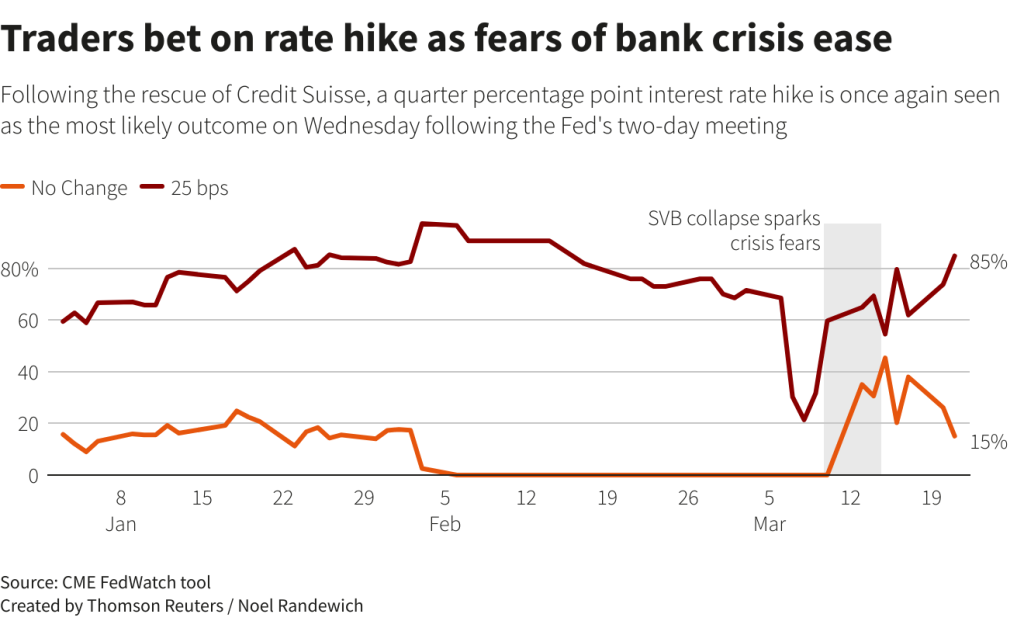- Market players are focused on the Federal Reserve meeting.
- Widespread concerns regarding liquidity in the banking sector have subsided.
- Economic data revealed a 14.5% increase in existing US house sales.
US equities closed substantially higher on Tuesday as market players focused on the Federal Reserve. This came as widespread concerns regarding liquidity in the banking sector subsided. The Fed is anticipated to end its two-day policy meeting on Wednesday with a 25 basis-point increase to its policy rate.
Regional bank collapses this week, followed by the rescue of First Republic Bank and the acquisition of Credit Suisse, sent banking stocks down. It stoked concerns about financial sector contagion. This, in turn, heightened concerns about the growing likelihood of a worldwide recession.
However, financial stocks recovered on Tuesday, capitalizing on the turnabout on Monday. Despite its recent rebound, the S&P Banks index dropped more than 18% this month.
In prepared remarks delivered to the American Bankers Association, Treasury Secretary Janet Yellen noted that the US financial sector has stabilized due to the regulators’ efforts. Still, she cautioned that additional action might be necessary.

The Federal Open Markets Committee (FOMC) gathered for its two-day monetary policy meeting. The bank will review its economic projections and, most likely, implement another increase to the Fed funds target rate. This is part of its ongoing fight against inflation.
According to CME’s FedWatch tool, at last glance, financial markets are currently pricing in an 85% possibility of a 25 basis-point rate hike and a 15% probability that the central bank will hold rates.
Early in the session, economic data revealed a 14.5% increase in existing US house sales, far above forecasts and ending a 12-month losing streak.
Banking stocks led a 1% increase in European equities on Tuesday following steps to stabilize the sector. European investors also hoped the US Federal Reserve would act less aggressively at its policy meeting.
The sector with the worst performance so far in March is Europe’s banking index, down 12.7%.
According to a note from S&P Global, European banks’ performance will be resilient, although divergent, as the economic reset takes effect.
On Tuesday, London equities rose more than 1% as lenders in the UK also recovered from concerns over a worsening banking crisis. After losing all of its gains for the year in the previous session, the FTSE 100 is now up 1.1%.


